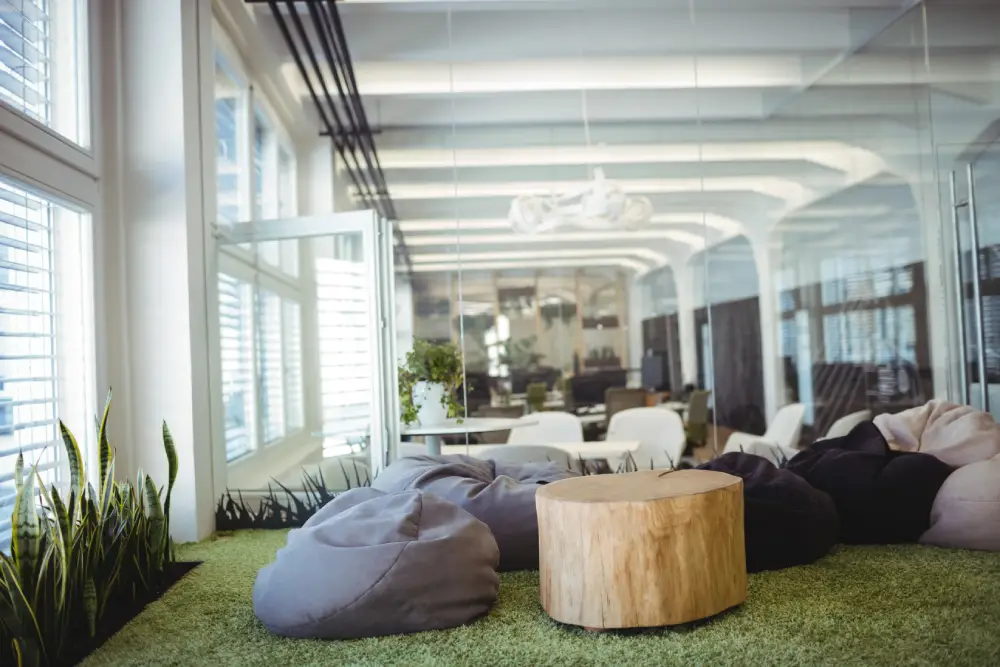Climate change is a very real prospect that is looming larger every day. The world as we know it is shifting towards sustainability in every sphere. Our decisions today will leave an indelible impact in shaping the future for the next generation. Many offices in Bangladesh are simultaneously making the move towards becoming green. We all know very well that coworking spaces are popping up everywhere across places like Dhaka & Chattogram, especially since the worldwide COVID 19 pandemic made us realize just how beneficial they could be in times of such crises. For many startups and MNCs that require very little space to work from, coworking spaces like Moar, The Business Center, Regus and WorkStation 101 are all great options that you can choose from! Keep reading on to see how green coworking spaces can enhance your working experience in the long run.

Businesses, no matter how large or small they may be, hold the power to build a greener future as they are major contributors of greenhouse gas emissions. Green coworking spaces have great potential to champion environmental sustainability as they promote working in a collaborative environment, where most resources are shared. These spaces also promote efficient use of space, reducing unnecessary waste, and also saving on operations costs to individuals and businesses that use these coworking spaces.
There are a number of ways in which a coworking space could become greener. For example, switching to energy-efficient LED lighting will reduce the consumption of electricity, lowering long-term maintenance costs thanks to their extended lifespan. It is even better if most of the coworking space uses natural light to light up the larger rooms, cutting off dependency on artificial lighting to a great extent. Adopting machinery and technology that is energy-efficient is also crucial in making the coworking space more green and eco-friendly. Programmable power strips that automatically turn off lights when the area is not in use can be highly beneficial. Additionally, people using the coworking space should be encouraged to use power-saving settings to increase energy savings.
The spaces can be decorated using furniture from sustainable materials like reclaimed wood, bamboo, or recycled plastic. Green roofs or roofs with solar panels can improve the insulation, while low VOC paints emit less toxic chemicals, leading to better air quality indoors. Non-toxic cleaning products can add to the improvement of the air quality within the bounds of the coworking space.

If the coworking space has a cafeteria, introduce a system whereupon waste from the kitchens can be redirected for composting, which can be used to fuel potted plants indoors or on the windowsills. Adding a recycling area with dedicated bins for different materials, will inspire members in the coworking space to be encouraged to recycle materials used daily, leading to a cleaner environment in the long run. You can also provide personal spaces for members to keep potted plants at their desks or personal spaces, which can naturally filter the air inside the office, creating a healthy environment that is also soothing to the eyes.
Another key area where improvements stand to be made are in the usage of water. Water consumption can be controlled by setting up water-saving devices like dual-flush toilets and automatic taps or faucets. Plumbing should be checked regularly to ensure there are no leaks, which can lead to major water wastage in the long run. Setting up a coworking space in a location which is highly accessible by public transport like buses and the Metro can also reduce the carbon footprint by introducing greener commuting options. Biking to your coworking space can also be a great way to keep in shape while simultaneously adding points for green commuting. You could also encourage carpooling by providing incentives for members, such as reserved parking spots; which in turn could lead to lower emissions and fewer vehicles on the streets.
In short, implementing sustainable practices in coworking spaces can enable them to play a major role in ensuring a greener future for the next generation. They could offer numerous benefits, such as attracting eco-conscious members, encouraging collaborations with brands that support and promote sustainability, and improving the overall well-being of society. By embracing a greener, more fulfilling way of working, you, too, can become part of a community that has created an environment for sustainability to thrive in.



